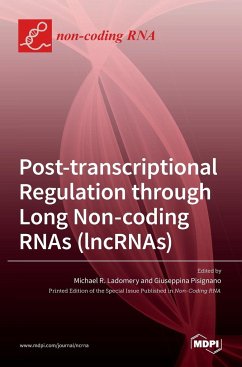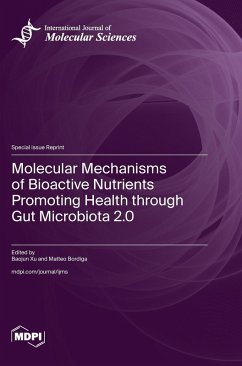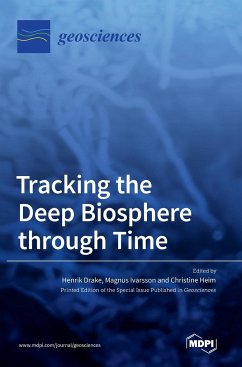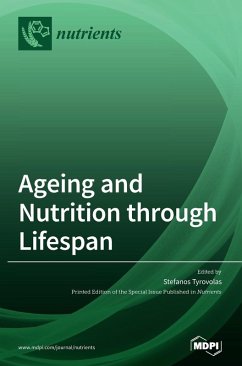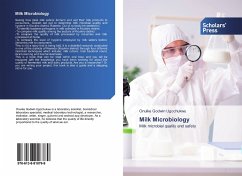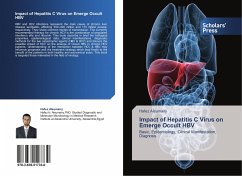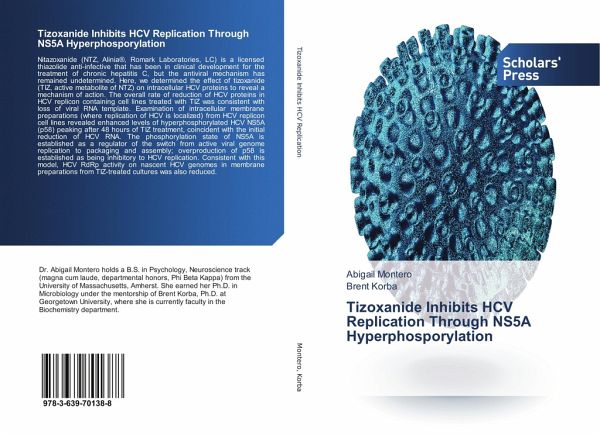
Tizoxanide Inhibits HCV Replication Through NS5A Hyperphosporylation
Versandkostenfrei!
Versandfertig in 1-2 Wochen
39,99 €
inkl. MwSt.

PAYBACK Punkte
20 °P sammeln!
Nitazoxanide (NTZ, Alinia®, Romark Laboratories, LC) is a licensed thiazolide anti-infective that has been in clinical development for the treatment of chronic hepatitis C, but the antiviral mechanism has remained undetermined. Here, we determined the effect of tizoxanide (TIZ, active metabolite of NTZ) on intracellular HCV proteins to reveal a mechanism of action. The overall rate of reduction of HCV proteins in HCV replicon containing cell lines treated with TIZ was consistent with loss of viral RNA template. Examination of intracellular membrane preparations (where replication of HCV is lo...
Nitazoxanide (NTZ, Alinia®, Romark Laboratories, LC) is a licensed thiazolide anti-infective that has been in clinical development for the treatment of chronic hepatitis C, but the antiviral mechanism has remained undetermined. Here, we determined the effect of tizoxanide (TIZ, active metabolite of NTZ) on intracellular HCV proteins to reveal a mechanism of action. The overall rate of reduction of HCV proteins in HCV replicon containing cell lines treated with TIZ was consistent with loss of viral RNA template. Examination of intracellular membrane preparations (where replication of HCV is localized) from HCV replicon cell lines revealed enhanced levels of hyperphosphorylated HCV NS5A (p58) peaking after 48 hours of TIZ treatment, coincident with the initial reduction of HCV RNA. The phosphorylation state of NS5A is established as a regulator of the switch from active viral genome replication to packaging and assembly; overproduction of p58 is established as being inhibitory to HCV replication. Consistent with this model, HCV RdRp activity on nascent HCV genomes in membrane preparations from TIZ-treated cultures was also reduced.




